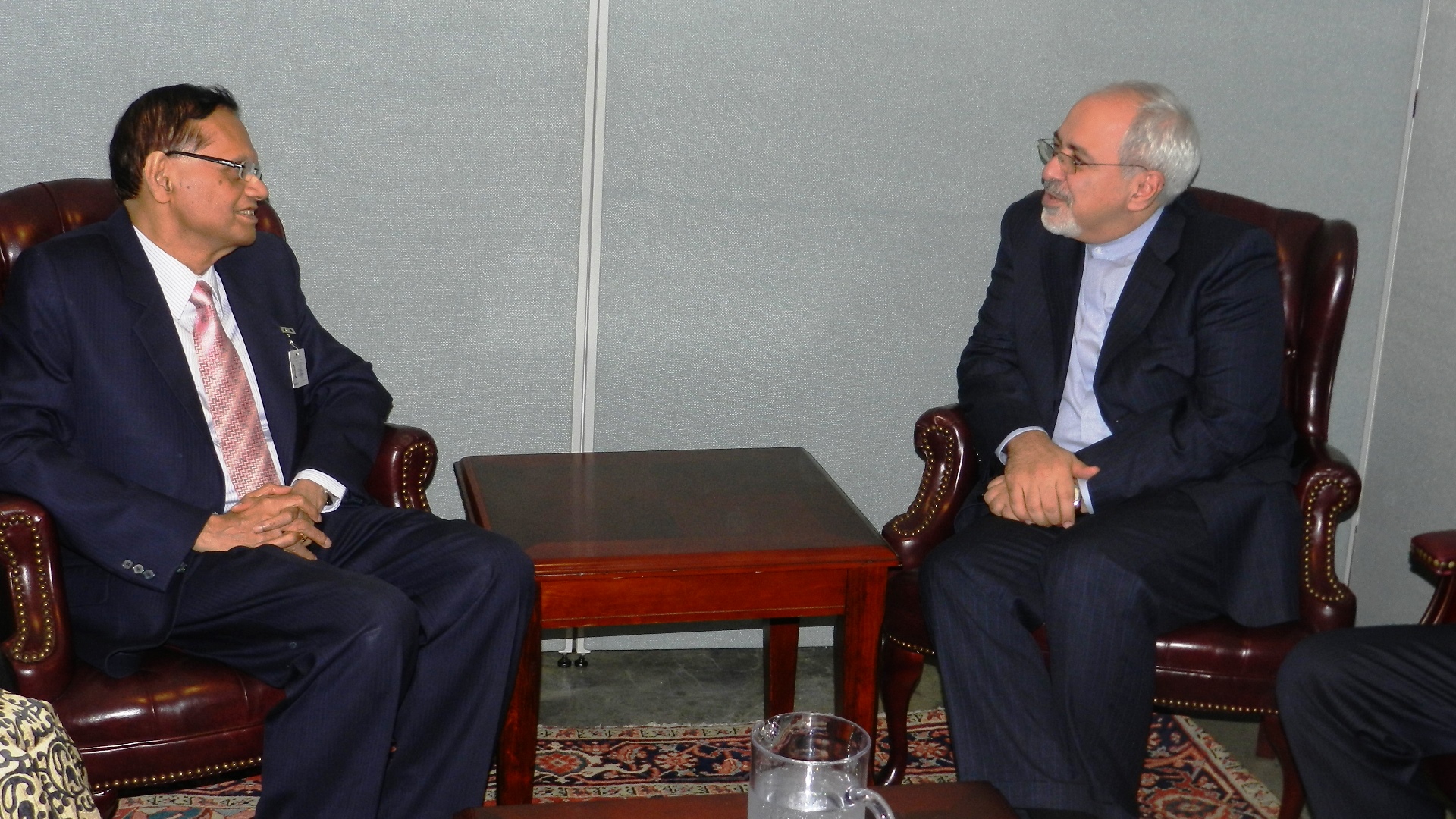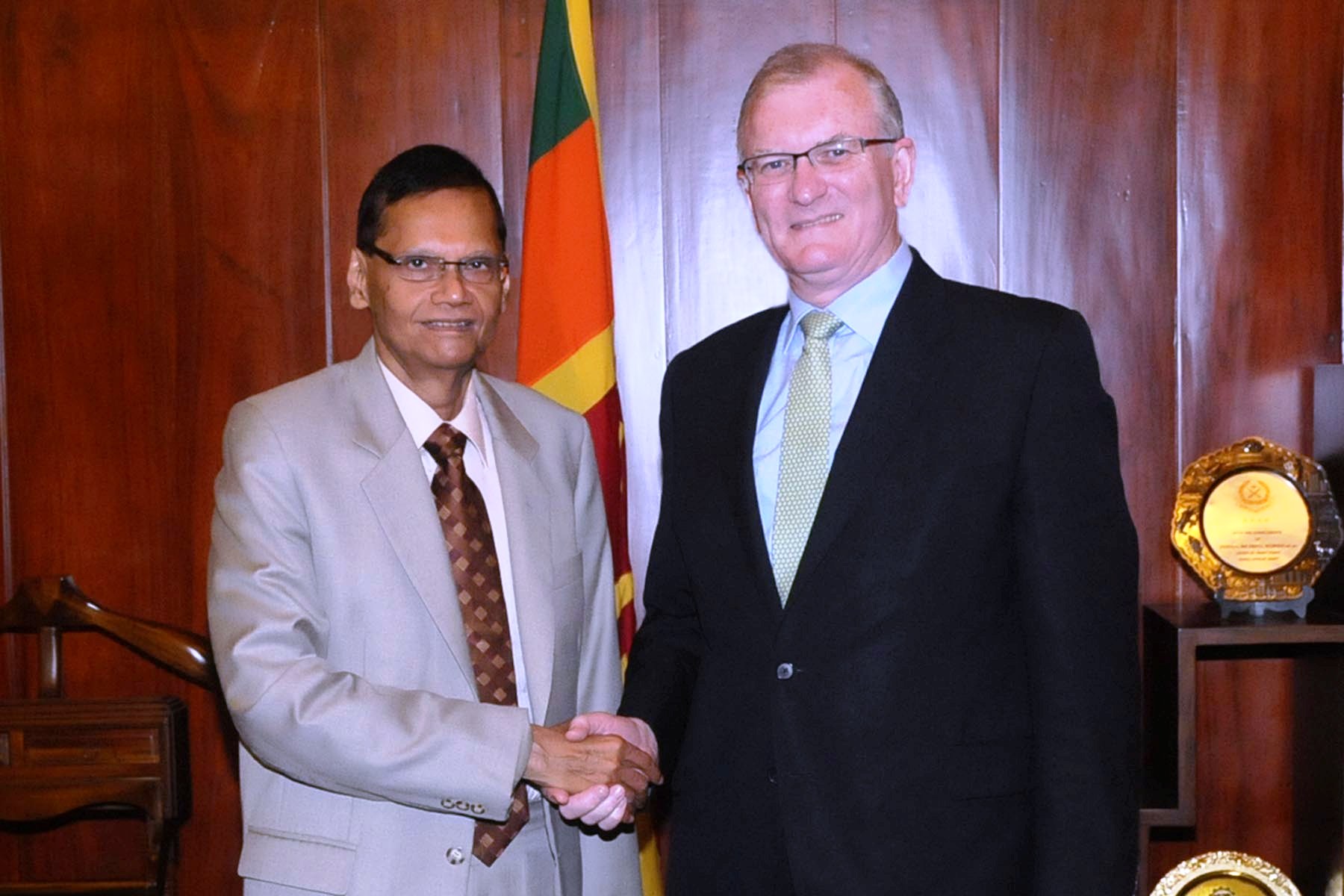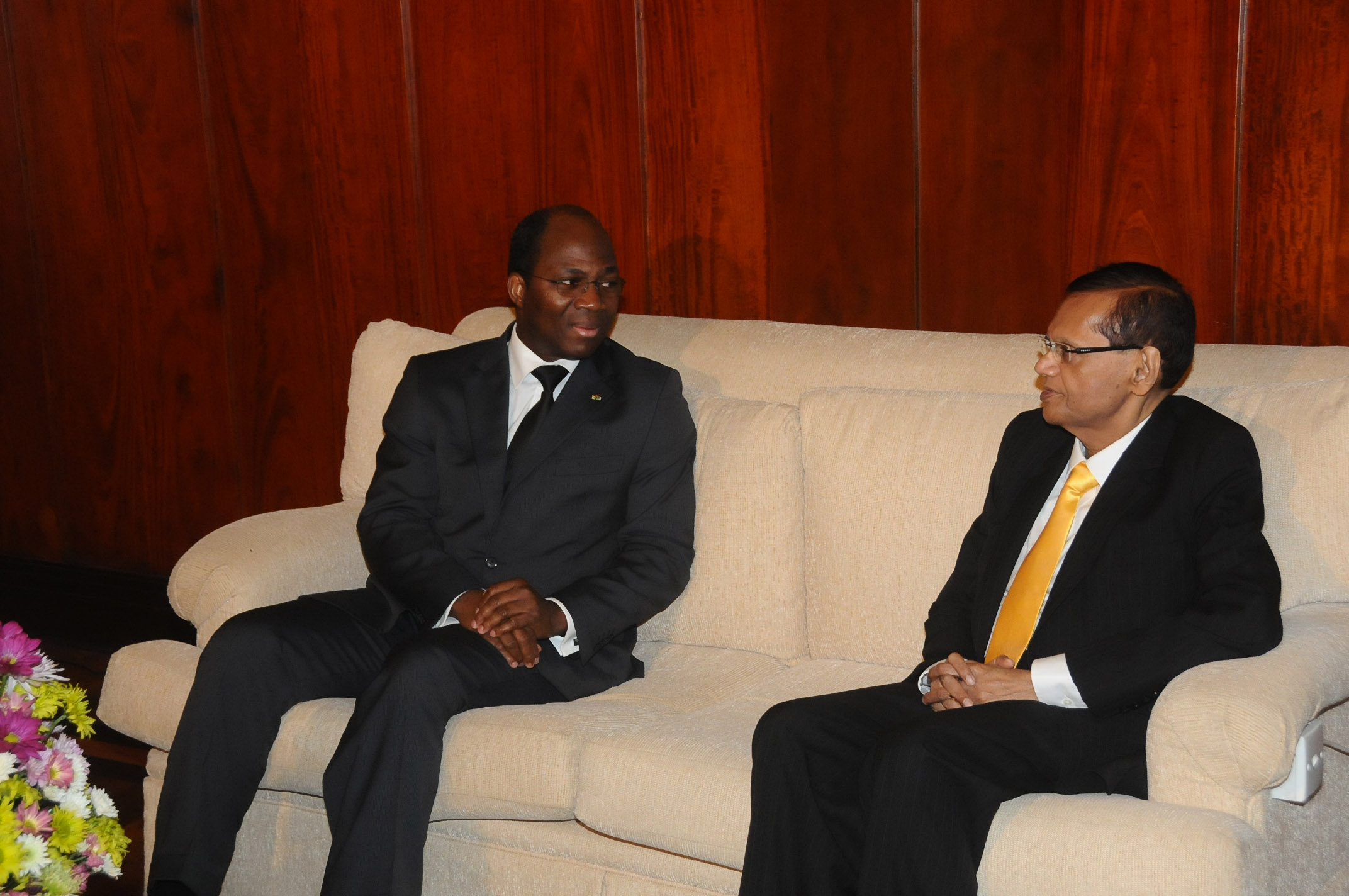අමාත්යාංශයේ මාධ්ය නිවේදන
Iran’s New Foreign Minister Reiterates Support and Goodwill for Sri Lanka

During an interaction with External Affairs Minister Prof. G.L. Peiris on the margins of the UNGA sessions in New York, Foreign Minister of Barbados Maxine McClean confirmed that the Prime Minister of Barbados will participate at CHOGM 2013 in Sri Lanka. Welcoming the Barbados delegation, Minister G.L. Peiris noted that the programme for CHOGM has been arranged in a manner to enable participants to experience other parts of the country. In this context he explained that the Commonwealth Youth Forum and the meeting between Business leaders and Heads of Government are being held in Hambantota in a bid to take the Commonwealth to the people. Explaining the Government’s vision towards creating an aviation, shipping and knowledge hub in Sri Lanka, Minister Peiris added that Hambantota presented much potential in this regard given the newly opened international airport and deep water port.
Prof. G.L. Peiris holds discussions with Counterpart from Sudan
External Affairs Minister Prof. G.L. Peiris met his Sudanese counterpart Foreign Minister Ali Ahmed Kartion at the sidelines of the UNGA in New York on Tuesday 24th September. The two Ministers discussed ways and means of enhancing the bilateral relationship between the two countries. Prof. Peiris observed that Sri Lanka attaches great importance to expanding its relations in Africa, and towards that end has initiated the establishment of diplomatic relations with several African countries. In this context he stressed the importance of strengthening particularly the economic and trade relations and the exchange of expertise. Minister Peiris also offered assistance to Sudan in healthcare and education, which sectors are particularly strong in Sri Lanka. Appreciating the offer, the Sudanese Minister observed that they would welcome training in nursing and opportunities for Sudanese students to study in Sri Lanka. He added that Asian-African collaboration was important and should be nurtured in bilateral as well as the multilateral context.
External Affairs Minister Peiris meets counterparts from Australia and Indonesia
At a meeting on Monday with External Affairs Minister Professor G.L. Peiris on the margins of the United Nations General Assembly session in New York, Australian Foreign Minister Julie Bishop expressed her country’s “deep appreciation” for Sri Lanka’s excellent cooperation in preventing, detecting and intercepting human smuggling operations to Australia. Minister Peiris stated that there is increased naval surveillance to prevent illegal means of transporting people by sea to Australia and therefore there is also heightened awareness on the issue in Sri Lanka. The Minister reiterated Sri Lanka’s continued cooperation in addressing this issue comprehensively.
Head of Commonwealth Business Council Calls on Prof G L Peiris

Mr. Peter Callaghan, Director General of the Commonwealth Business Council, called on Professor G.L. Peiris, Minister of External Affairs, for discussions relating to the arrangements under way for the Business Forum which will be held in Colombo in November on the sidelines of the Commonwealth Heads of Government Meeting (CHOGM).
Condolence message from HE the President to President of China H.E. Xi Jingping on the loss of life and displacement from the earthquake of 20th April 2013
His Excellency Xi Jingping,
President of the People`s Republic of China
Excellency,
I am deeply saddened to hear of the loss of life and devastation as a result of the earthquake in Sichuan Province, China on 20th April 2013.
Senior Minister of Foreign Affairs and Regional Cooperation of Burkina Faso Djibrill Yipéné Bassolé concludes three-day official visit to Sri Lanka, 03rd – 06th April, 2013
Joint Press Release

Strengthening friendly relations between Sri Lanka and Burkina Faso, a six member delegation headed by Senior Minister of Foreign Affairs and Regional Cooperation of Burkina Faso, Djibrill Yipéné Bassolé arrived in Sri Lanka on 3rd April 2013 on a three-day official visit. The delegation included the Burkina Faso Ambassador for Sri Lanka, resident in New Delhi, Idriss Raoua Ouedraogo, Director of the Minister’s Cabinet Amadou Dicko, Director-General for Bilateral Relations Gnama Henri Bacye, Head of Asia Pacific Division Binta Kargougou, Director/Asia, Pacific and Middle East Fatoumata Ouedraogo of the Ministry of Foreign Affairs and Regional Cooperation of Burkina Faso.



